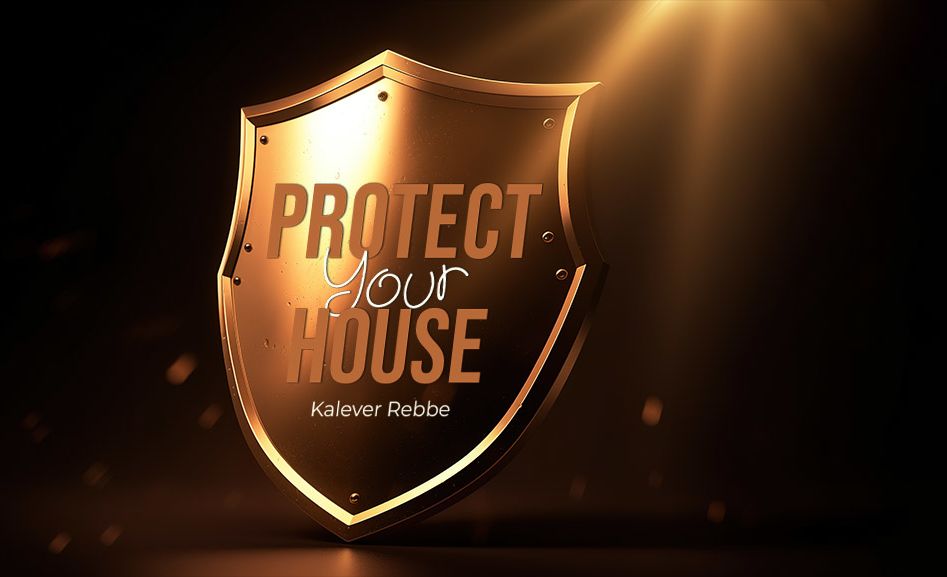
Let Me Be Me!
Traumas are rarely enough to explain why young people find it so hard to become who they really are – especially if their parents want them to become someone else...

Ten year old Todd stood at bat and was praying to strike out. How many 10 year olds do you know who want to lose?
The other team lost a player and Todd’s father told him that as much as he wanted his team to win, he must get up and honestly bat for the opposing team and do his best to beat his own team.
There on the sidelines sat little Todd’s peers, his teammates who he had bonded with all season. Finally they had reached the little league playoffs.
Todd winked at the pitcher (from his own team) about to deliver the pitch, he signaled for a high and outside pitch and intentionally struck out.
Todd felt guilty that he wasn’t able to live up to his father’s expectations. Later that day he confessed. His father said: “You have sinned against me Todd; you have betrayed me by not trying your hardest (to win for the other team).
Twenty years later, Todd called Breslev Israel. He wanted a consultation with an emuna therapist. He entered therapy wondering why he feels it would be such a betrayal of his father to stop working in his  father’s business (which he hates) and pursue his passion which would be a career in music.
father’s business (which he hates) and pursue his passion which would be a career in music.
The incident on the ball field was definitely traumatic, but one-time traumas, even big-ones are rarely enough to explain why young people find it so incredibly hard to become who they really are – especially if their parents want them to become someone who they really are not.
When I asked him about this, Todd, very openly, cued me into the deeper reasons why he feels like a bad person who hates himself because he secretly wants to betray his father again by leaving the family business.
The truth according to Todd is that he basically grew up believing that he was born bad. He was born a sinner and that’s why anything that he wants to do for himself and not for others, like “dad” is considered “evil.”
Why then does Todd want a Jewish therapist? I asked him that question myself. He said one of the reasons he wanted to speak with a Jewish therapist was to know if what he was taught, which is that he was born evil is really true or not according to Jews. His first question for me had to do with Psalm 51:5 which says: Behold, I was brought forth in iniquity; and, in sin my mother conceived me. “Isn’t that proof enough that I’m evil” contended Todd? If King David said so, mustn’t it be true?
“No Todd, this is not what King David meant. In fact the real you is very good and has never sinned at all! Your soul, which is the real you, is as good and pure as when it was created. What King David meant is that when a child is born he gets an “evil inclination” and he doesn’t get his “good inclination until he is 13. The difference between kids and teenagers (13 for boys and 12 for girls) is that teenagers get a yetzer tov (good inclination) and they start wanting to search for a valued truth to live by. The good inclination comes with the beginning of adolescence and urges the teenagers to search for who they are really are and what values matter to them. They start wanting to live in conformity with a valued reality that makes sense to them and not in childhood fantasies and games. Teens want to make those values their own.
A child doesn’t care about reality. Children live in fantasy. They want to play and do whatever feels good to them. They are generally looking for pleasure fulfillment and don’t understand consequences; because they don’t yet have the good inclination they don’t yet have any internalized good values of their own yet. Some kids may seem to have internalized values, but they only act as though they do in order to avoid punishment or win parental approval. This immaturity has nothing to do with intelligence. A kid can be a genius and still want to eat candy all day and never brush his teeth, unless his parents keep an eye on him.
“It was very unfair for your father to put you in that position, Todd. He obviously didn’t understand the difference between a child and an adult. He was expecting you to do more than you could at that age. A child doesn’t have the capacity to live on such a high level of honestly and fair play. Then to make matters worse he called you a betrayer and sinner. The tragedy is that this isn’t even what your father meant to say, but because he is out of touch with his own inherent goodness (from all the church sermons) he spoke to you the way he was conditioned to think about himself. But really, what you did was what any kid (and most adults today) would want to do when under the peer pressure of not wanting to let down friends.
How can Hashem give kids a yetzer hara (an evil inclination) at birth without giving them a yetza tov (good inclination) until their adolescence to help them fight against it? The answer is that the child has parents who do have a yetza tov and whose internalized values help to shape the child and prepare him for when he will get his yetzer tov. This is why the commandment to educate our children (in values) through our example is so important. Because without parents who have good values and fair expectations of their children, kids don’t’ have a chance against the yetzer hara – kids either explode or implode in families where the parents are negligent in modeling good behavior for their children.
Parents also need to reinforce that the essence of their kids is good. “You needed to know and believe Todd that on a soul-level that you wanted to fulfill your father’s request, but that it would have been impossible at that age. Even most adults today don’t know how good they are and so feel inadequate in some ways about themselves as a result of what other people tell them about themselves.”










Tell us what you think!
Thank you for your comment!
It will be published after approval by the Editor.